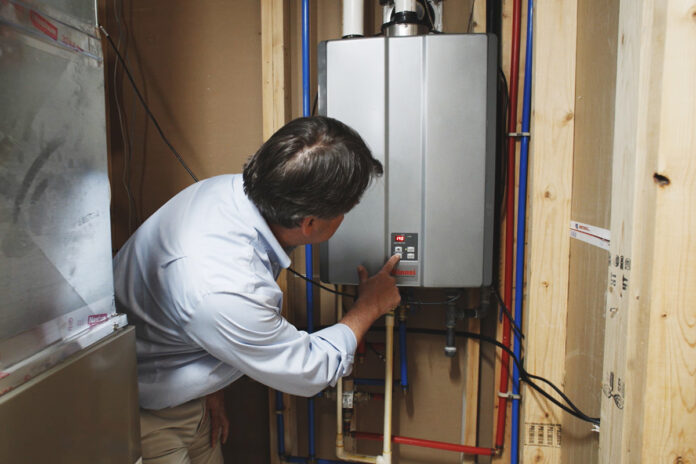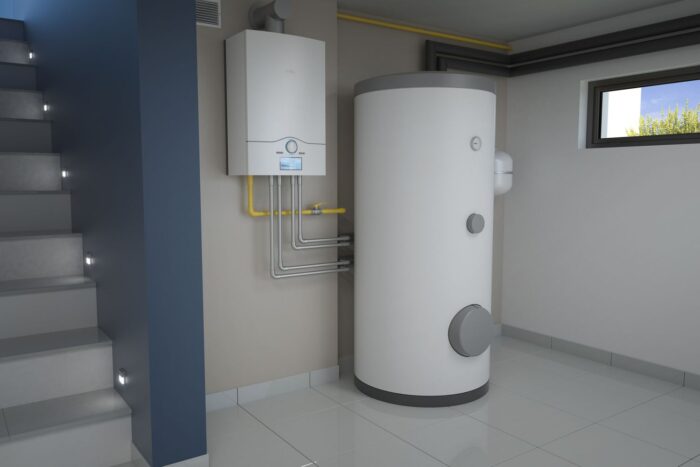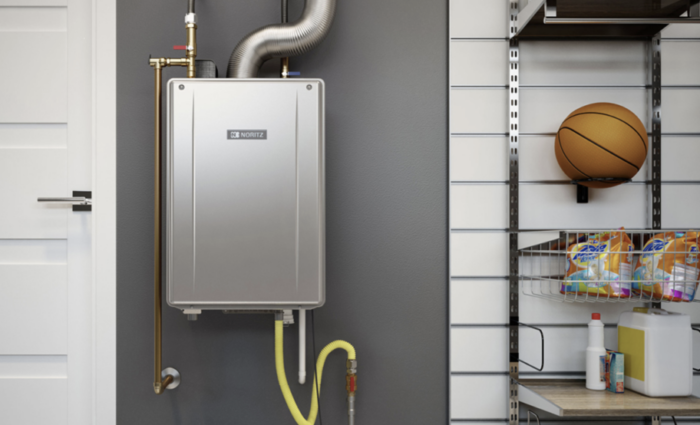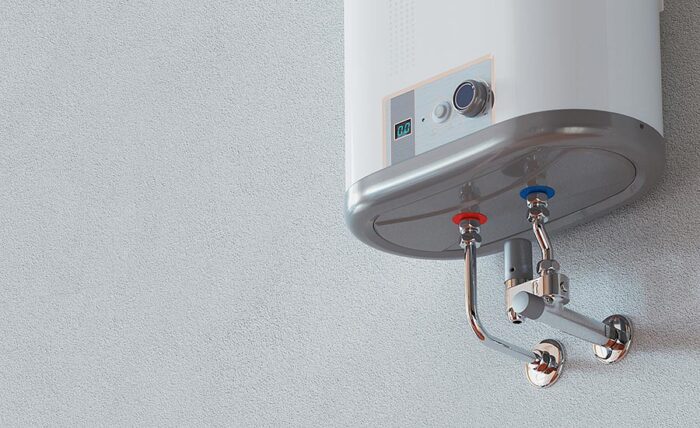
Tankless systems have earned great praise due to their energy efficiency. Since these units heat water on demand as it travels through your pipes, they are significantly less costly than traditional tank systems.
Hire a professional water heater installer to ensure it complies with local codes and permits and help select an optimal unit for your home.
For all your concerns, including installation, compliance with local regulations, and choosing the suitable unit for your home, consider teaming up with a professional plumbing company, like J. Blanton, for high-quality tankless water heater services.
1. Size and capacity of the tankless water heater

The size and capacity of a tankless water heater are crucial in determining its ability to heat a house. Tankless units are available in different sizes, measured by their flow rate in gallons per minute (GPM).
Whole-house tankless water heaters typically have a higher flow rate, ranging from six to ten GPM, making them suitable for larger homes with multiple hot water appliances.
In contrast, point-of-use tankless water heaters have a lower flow rate and are designed to supply hot water to a specific application, such as restrooms or kitchen sinks.
It is important to seek professional advice when choosing a tankless water heater for your home in order to identify the right size and capacity based on your household’s hot water requirements.
2. Climate considerations in your area

The climate you reside in plays a significant role in determining whether a tankless water heater can effectively heat your house. Tankless water heaters rely on their heating elements or gas burners to raise the incoming water temperature to the desired level.
In colder climates, where the coming water temperature is lower, tankless water heater units may struggle to provide hot water at the desired flow rate. In these cases, a larger or more powerful tankless water heater may be necessary to meet the heating demands of the house.
3. Hot water demand in your household

The efficiency of a tankless water heater as a significant heating source is also influenced by the amount of hot water that your home uses. If your home has numerous bathrooms, multiple appliances, and many residents who frequently use hot water simultaneously, a tankless water heater with a higher flow rate is required to provide an adequate hot water supply.
On the other hand, if your hot water demand is relatively low and you seldom run multiple hot water appliances simultaneously, a smaller tankless unit may be sufficient.
Installing a tankless water heater requires the services of a professional plumber, who must install new gas, venting, and water lines and upgrade any circuit-breaker panels needed for an electric model.
Furthermore, professional plumbers may perform annual maintenance tasks such as vinegar flushes to protect against mineral build-up in the unit, which could reduce energy usage by as much as 40%.
For more information about tankless hot water heaters, don’t hesitate to get in touch with your local plumbing service providers.








